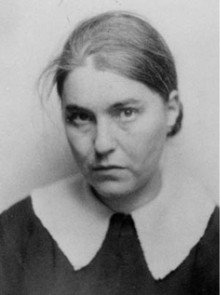Nobel Prize laureate VS Naipaul created outraged headlines a couple of weeks ago with his comments about women writers. Naipaul first aimed high by launching a broadside against Jane Austen(!):
In an interview at the Royal Geographic Society on Tuesday about his career, Naipaul, who has been described as the "greatest living writer of English prose", was asked if he considered any woman writer his literary match. He replied: "I don't think so." Of Austen he said he "couldn't possibly share her sentimental ambitions, her sentimental sense of the world".
Of course, this is patently absurd, since Jane Austen is a writer for the ages, while Naipaul will be remembered as a good writer of A House for Mr. Biswas and A Bend in the River.
But the second part of Naipaul's diatribe against woment writers was rather more intriguing:
"I read a piece of writing and within a paragraph or two I know whether it is by a woman or not."
Naipaul, of course, meant this as a criticism, since if it is "by a woman" it is necessarily inferior (" I think [it is] unequal to me."), for women are trapped by "sentimentality, the narrow view of the world"; "And inevitably for a woman, she is not a complete master of a house, so that comes over in her writing too." But, leaving aside the female-bashing, is Naipaul correct with his assertion that it is possible to identify a female voice "within a paragraph or two"?
Well, with some writers, yes. I just (re)read Ingeborg Bachmann's Das dreißigste Jahr (1961) which is clearly written from a female sensibility, even though the narrative perspective is that of a young man (both third and first person). This is not to say that Bachmann's piece is "feminist tosh" (Naipaul), but rather that Bachmann has a distinctive feminine poetic voice that comes through in her prose.
On the other hand, consider the prose of fellow Nobel prize-winner Elfriede Jelinek, who, with her mastery of words is clearly "in command of a house" and whose fury destroys any sentimentality in its path. I defy Naipaul, or anyone else, to put a random paragraph of Jelinek side by side with sentences by Thomas Bernhard and find any substantial difference. Both are informed by rage, except Jelinek's is often directed at men (she is perhaps the perfect foil to Naipaul's misogyny).
And then there is the example of Anna Seghers, who often writes with muscular, masculine style. Her best novel, Transit is written from the perspective of an anonymous 27-year old male and is completely convincing as such. In general, Seghers is attracted to male protagonists. Women are peripheral figures in most of her novels, including Das siebte Kreuz, DIe Toten bleiben jung, and Die Entscheidung. But in the autobiographical novella Ausflug der toten Mädchen Seghers does switch to a distinctively woman's perspeciive.
All of which is to say that the best writers have the skill to modulate their voice, or create multiple voices, to convey their art.



0 comment
David: I agree with you. I wrote something along the same lines on my blog somewhere.
@Hattie,
Couldn’t find it. Please send a link, if you are able.